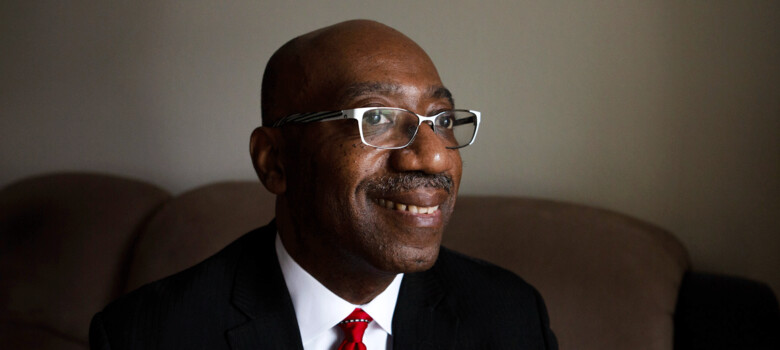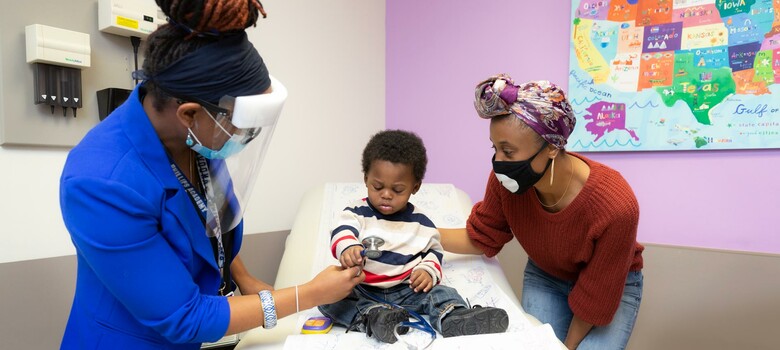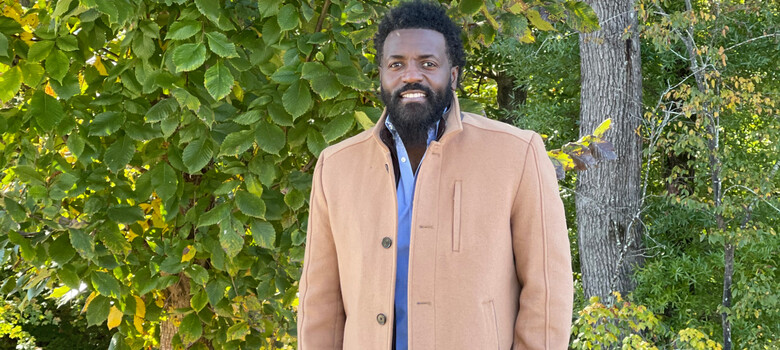Giving Back After a Speedy Liver Transplant at Duke

When 48-year-old Michelle Ngom woke up with a headache, fever, and nausea, she called in sick to her job as a manager at Goodwill Industries. Fearing she might have contracted the coronavirus, she headed to an urgent care near her home in Gastonia, NC for a COVID test. Little did she know that three days later she would find herself at Duke University Hospital with a new liver.
A Failing Liver
The urgent care doctor sent Ngom home with medication and instructions to report to the emergency room if she did not improve within a day. Exhausted, she fell asleep. When she awoke later, she was shocked at what she saw in the mirror -- the whites of her eyes were dark yellow. She immediately called 911.
The rest of the details are fuzzy. She vaguely recalls riding in an ambulance and arriving at her local hospital. “The next thing I remember was waking up at Duke, and Dr. Berg was saying, ‘Michelle, open your eyes. You had a liver transplant.’"
Ngom was shocked. “I hadn’t known anything was wrong with my liver.” Ngom’s condition was not related to COVID -- her test had come back negative. Rather, she had experienced acute liver failure, meaning her liver had stopped functioning. This life-threatening condition is rare but can develop quickly in an otherwise healthy person. “By the time she got to Duke, she was actively dying,” said Carl Berg, MD, Ngom’s hepatologist. “It was only because of the speed with which she received her liver transplant that she survived.”
No Time to Spare
When Dr. Berg learned early on a Sunday morning that Ngom was being rushed to Duke and that her condition was dire, he and his team took immediate action. Under normal circumstances, it takes at least a week to evaluate a liver transplant candidate and get them listed them in the national database for organ donation. But for Ngom, there was no time to spare.
Through an organized team effort, she was evaluated and listed for transplant 36 hours after she arrived at Duke. “The chief medical officer of Duke Health recognized the severity of the situation and made space for her when there was no space,” explained Dr. Berg. A dozen or more different teams weighed in on whether she was an acceptable candidate. “That all the different people came together right away and made it all happen so quickly is remarkable. It worked like a well-choreographed ballet,” he said.
Hanging on by a Thread
While Ngom waited for a donor, Dr. Berg kept a close eye on her condition. “Every few hours I would go see her, and each time she was worse than a few hours before,” he recalled. Fortunately, the national transplant system prioritizes very sick patients like Ngom, and less than a day after she was listed, a donor liver became available. The offer came just in time. “She was hanging on by a thread when we transplanted her,” Dr Berg said.
The Road to Recovery
Ngom’s surgery went very well, according to Dr. Berg, “and her recovery, considering how ill she was, was absolutely as good as could be expected.” Less than three months after her transplant, Ngom asked for his okay to return to her job. “This is where the joy comes for me -- to have Michelle, who was literally dying before the transplant, asking, ‘Can I have a letter to go back to work?’” Dr. Berg agreed that she was ready and knew she was eager to return to serving her community.
Supporting a Miracle
A woman of deep faith, Ngom has always counted her blessings, and her experience at Duke is no exception. “It just opened my eyes to so many things I'm so grateful for, including the donor's family. I'm sure I am blessed. God really loves me! Because if he didn't, I wouldn't be here.”
Dr. Berg added, “In a transplant center that wasn't so well coordinated, the outcome would not have been as good. It's like a miracle. And the fact that our system was able to support that miracle is gratifying."



